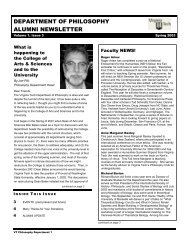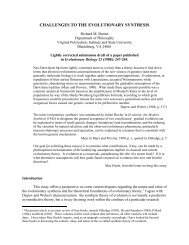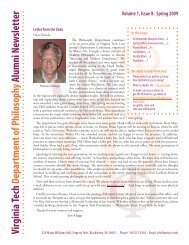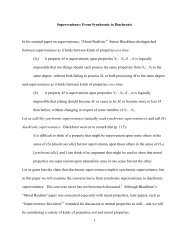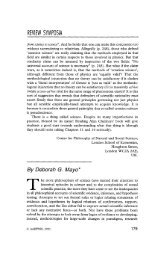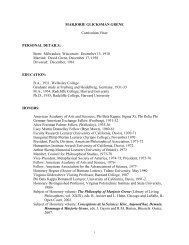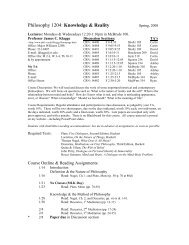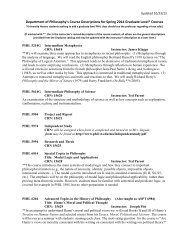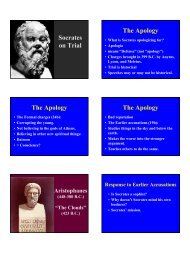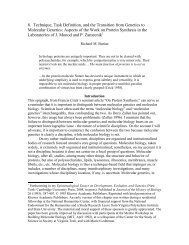Wittgenstein in Exile
Wittgenstein in Exile
Wittgenstein in Exile
Create successful ePaper yourself
Turn your PDF publications into a flip-book with our unique Google optimized e-Paper software.
energy and even if the spectacle which our age affords us is not the formation of a great cultural<br />
work, with the best men contribut<strong>in</strong>g to the same great end, so much as the unimpressive spectacle<br />
of a crowd whose best members work for purely private ends, still we must not forget that the<br />
spectacle is not what matters…<br />
And he goes on to write:<br />
It is all one to me whether or not the typical western scientist understands or appreciates my work,<br />
s<strong>in</strong>ce he will not <strong>in</strong> any case understand the spirit <strong>in</strong> which I write.<br />
Our civilization is characterized by the word ‘progress’. Progress <strong>in</strong> its form rather than<br />
mak<strong>in</strong>g progress be<strong>in</strong>g one of its features. Typically it constructs. It is occupied with build<strong>in</strong>g an<br />
ever more complicated structure. And even clarity is sought only as a means to this end, not as an<br />
end <strong>in</strong> itself.<br />
For me on the contrary clarity, perspicuity are valuable <strong>in</strong> themselves.<br />
I am not <strong>in</strong>terested <strong>in</strong> construct<strong>in</strong>g a build<strong>in</strong>g, so much as <strong>in</strong> hav<strong>in</strong>g a perspicuous view of<br />
the foundations of possible build<strong>in</strong>gs.<br />
So I am not aim<strong>in</strong>g at the same target as the scientists and my way of th<strong>in</strong>k<strong>in</strong>g is different<br />
from theirs. 14<br />
Much of <strong>Wittgenste<strong>in</strong></strong>’s later work was an attempt to change people’s th<strong>in</strong>k<strong>in</strong>g, especially what<br />
he took to be their tendency to an idolatry of science. This is explicit <strong>in</strong> the 1938 lectures on<br />
aesthetics, where <strong>Wittgenste<strong>in</strong></strong> claims to be mak<strong>in</strong>g propaganda for his style of th<strong>in</strong>k<strong>in</strong>g, and<br />
persuad<strong>in</strong>g his students aga<strong>in</strong>st the “idol worship” of science. 15<br />
Indeed, <strong>Wittgenste<strong>in</strong></strong> saw this as<br />
an <strong>in</strong>stance of his philosophical method: “All that philosophy can do is to destroy idols.” 16<br />
Though he also saw that such changes might be more a matter of chang<strong>in</strong>g the style of life than of<br />
chang<strong>in</strong>g just the style of thought. 17<br />
But what did <strong>Wittgenste<strong>in</strong></strong> th<strong>in</strong>k that he could accomplish, as the prophet <strong>in</strong> exile,<br />
preach<strong>in</strong>g aga<strong>in</strong>st the idols? <strong>Wittgenste<strong>in</strong></strong> had no illusions about the difficulty of his task:<br />
Put a man <strong>in</strong> the wrong atmosphere and noth<strong>in</strong>g will function as it should. He will seem unhealthy<br />
<strong>in</strong> every part. Put him back <strong>in</strong>to his proper element and everyth<strong>in</strong>g will blossom and look healthy.<br />
5



